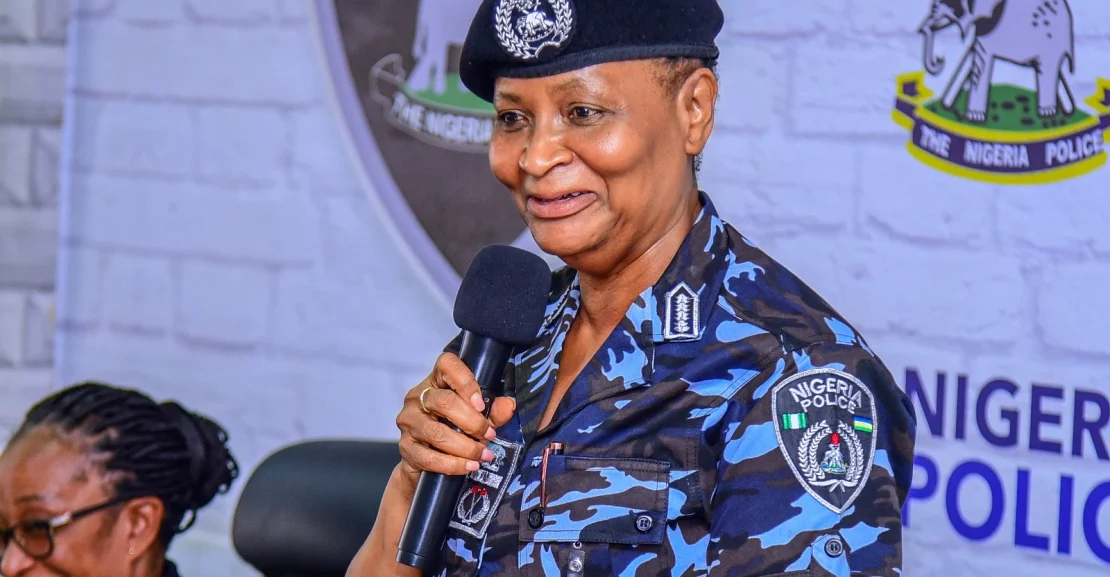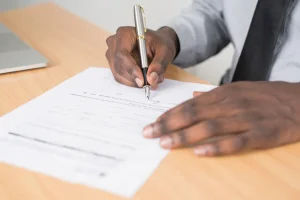When it comes to obtaining police clearance in Nigeria, several questions arise, especially concerning documentation. One of the most frequent inquiries is whether the Bank Verification Number (BVN) is required for police clearance.
If you are ready to dive deep into the topic to clarify misconceptions and get comprehensive insights about what the police clearance process entails in Nigeria and where BVN fits into the equation allow us to walk you through it.
Let’s begin with making it clear that the Police Clearance Certificate (PCC) is an official document issued by the Nigerian Police Force that certifies an individual’s criminal record or the absence of it.
This document is essential for various legal, employment, and immigration purposes. The police clearance certificate is often requested by employers, embassies, or government agencies to ascertain that the applicant does not have a criminal record in Nigeria.
READ ALSO:
- Is Proof of Ownership Renewable in Nigeria?
- How to Get a Police Character Certificate from Abroad
- How to Get a Police Report for a UK Visa in Nigeria
- How to Get Police Character Certificate from Outside Nigeria
Who Needs a Police Clearance Certificate?
Individuals who need a police clearance certificate include:
- Immigrants: Nigerians planning to migrate to other countries for work, study, or residency are often required to submit police clearance certificates to verify that they have no criminal records in Nigeria.
- Job Seekers: Many employers, especially in sectors such as banking, government, and security services, require job applicants to submit police clearance certificates.
- Business Owners: Some corporate entities may require a police clearance as part of due diligence before engaging in partnerships or contracts.
- Legal Proceedings: For certain legal actions like adoption or court cases, individuals might be required to provide evidence of good conduct through a police clearance certificate.
How to Apply for a Police Clearance Certificate in Nigeria
The application for a police clearance certificate can be done at any police station in Nigeria, but the most common place is the Nigeria Police Force Criminal Investigation Department (FCID) in Abuja. Here’s a step-by-step guide:
- Visit a Police Station: You can start by visiting the police station near you or the FCID.
- Provide Necessary Documents: Some documents are necessary for the application, such as:
- Passport photographs
- A valid means of identification (e.g., national ID, international passport, or driver’s license)
- Application letter requesting the certificate
- Fingerprints Collection: At the police station, your fingerprints will be taken as part of the criminal record check process.
- Payment: A fee is typically required for processing the clearance. The amount varies depending on the police station or the nature of the request.
- Processing Time: Once you’ve submitted all necessary documents and payments, it usually takes a few days to weeks for the clearance to be issued, depending on the complexity of the application and the backlog of requests.
What is a Bank Verification Number (BVN)?
The Bank Verification Number (BVN) is a biometric identification system introduced by the Central Bank of Nigeria to curb fraud in the banking sector and to ensure the unique identification of customers.
The BVN assigns a unique number to every bank customer, which is tied to their personal and biometric data (like fingerprints and facial recognition).
Purpose of the BVN
The primary goal of the BVN system is to:
- Reduce incidents of identity theft in banking operations.
- Simplify the banking process by allowing customers to use one identification across all banks in Nigeria.
- Help the Central Bank of Nigeria monitor financial transactions and ensure compliance with banking laws.
Why People Assume BVN is Necessary for Police Clearance in Nigeria
The BVN is a critical identification tool in Nigeria’s financial system, and over the years, it has become a common requirement in many official processes.
Some people mistakenly believe that BVN is required for police clearance due to its widespread use in various identification and verification processes.
Given that many government and private institutions use BVN to verify individuals’ identities and track records, it can lead to the assumption that it’s also necessary for police-related matters, such as obtaining a police clearance certificate.
Is BVN Required for Police Clearance in Nigeria?
To directly answer the question, the BVN is not a mandatory requirement for police clearance in Nigeria.
The police clearance process is more concerned with verifying an individual’s criminal history, and as such, the necessary documents for this procedure are typically your identification (such as a passport or national ID) and your fingerprints.
The BVN, being a financial system identifier, is not linked to the criminal justice system and therefore has no role in obtaining a police clearance certificate.
Why BVN is Not Needed for Police Clearance in Nigeria
The BVN system is designed strictly for banking purposes and financial monitoring. Here’s why it’s not required for police clearance:
- Purpose Misalignment: The purpose of a BVN is to ensure that financial transactions can be traced to the right individual, not to verify criminal records. Police clearance deals with criminal databases, which are entirely separate from the financial sector.
- Privacy Concerns: The BVN contains sensitive financial information. Requiring it for non-financial purposes, such as police clearance, would raise significant privacy concerns, particularly around data sharing between institutions that are not directly related to financial oversight.
- Existing Identification Options: There are already standard forms of identification, such as international passports, national identity cards, and driver’s licenses, which suffice for verifying an individual’s identity during the police clearance process.
What is Actually Required for Police Clearance in Nigeria?
While the BVN is not needed, certain key documents and steps are required to obtain a police clearance certificate in Nigeria. Below is a breakdown of the standard requirements:
1. Valid Identification
Applicants are required to provide any form of valid government-issued identification. Acceptable forms of identification include:
- International Passport
- National Identity Card
- Voter’s Card
- Driver’s License
This identification is essential for confirming the identity of the person applying for the police clearance certificate.
2. Passport-Size Photographs
Recent passport-sized photographs are also necessary. These are typically affixed to the application form and certificate.
3. Fingerprint Impressions
As part of the background check process, the Nigerian Police Force collects the fingerprints of applicants.
These fingerprints are cross-checked with existing criminal databases to ensure that the applicant has no prior criminal history.
4. Payment Receipts
Applicants are usually required to pay a processing fee for their police clearance certificates. The amount varies depending on whether the clearance is for local use or international use.
Also, the receipt of payment is important and must be presented when applying for the clearance.
5. Application Letter
In many cases, applicants are required to write a formal letter requesting the police clearance certificate.
The letter should clearly state the reason for the request (e.g., for immigration, employment, or legal purposes).
6. Contact Information
It is often necessary to provide accurate contact details, including an address and phone number, for follow-up or delivery of the clearance certificate.
Common Misconceptions About BVN and Police Clearance in Nigeria
There are a few misconceptions that have led some Nigerians to believe that a BVN is required for police clearance. Let’s clear these up:
1. BVN as a General Identification Tool
Many people see the BVN as a universal identification tool because it’s widely used for accessing bank accounts and even for other processes such as registering for the National Identification Number (NIN).
However, while BVN is important for financial transactions, it is not a substitute for government-issued IDs like passports or driver’s licenses in legal or official documentation processes such as police clearance.
2. Overlap Between Financial and Criminal Records
Some believe that because BVN is used to track individuals in the banking sector, it might also be used for checking criminal records.
In reality, criminal records are maintained by law enforcement agencies and are not directly linked to financial institutions or BVN data.
3. Corruption and False Requirements
In some instances, corrupt officials may misinform applicants, claiming that a BVN is needed to get a police clearance certificate as a way to extort money or personal information. It’s important to be aware of the official requirements and avoid falling for such claims.
READ ALSO:
- Easy Ways to Renew Proof of Ownership Certificate
- How to Get a Proof of Ownership Certificate
- Who Issues Proof of Ownership in Nigeria?
- Where Can I Get a Certificate of Ownership in Nigeria?
- What is an Affidavit of Proof of Ownership in Nigeria?
In a nutshell, the Bank Verification Number (BVN) is not required for police clearance in Nigeria.
Instead, applicants should focus on providing the correct documents, such as valid identification, passport-size photographs, and fingerprint impressions, to successfully obtain their police clearance certificate.
However, Police clearance in Nigeria is an important document for various processes like employment, immigration, and legal matters, and understanding what is required can help you avoid unnecessary delays or complications.
Ensure you have the right identification and follow the correct process, and there will be no need to worry about BVN involvement in your police clearance application.




